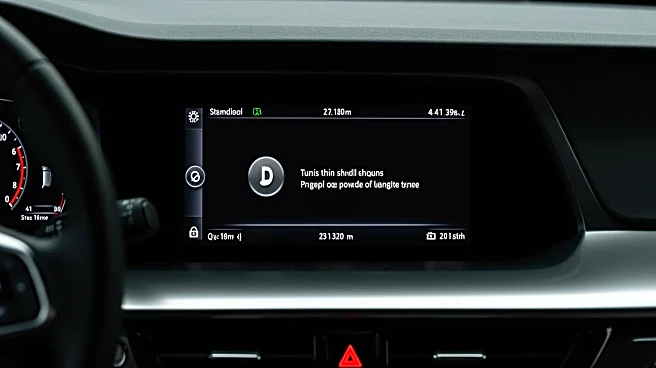What's Happening?
A Toyota RAV4 owner, Travis, expressed frustration on TikTok after receiving a 'Your session has expired' message on his car's infotainment screen, which he interpreted as a demand for subscription payment. The message prompted him to believe that Toyota was remotely enforcing a subscription service. However, commenters and Toyota owner forums clarified that the message is a standard security prompt related to the Toyota Drive Connect system, requiring users to re-enter their PIN for account verification. This security check occurs approximately every six months, independent of subscription status. Despite Travis's claims, other users suggested that the issue might be device-specific or related to a faulty software update.
Why It's Important?
The incident highlights consumer concerns over the automotive industry's shift towards subscription-based services for features traditionally included in vehicle purchases. This trend has sparked debate among consumers who feel they are being charged repeatedly for functionalities in vehicles they already own. The confusion experienced by Travis underscores the need for clearer communication from automakers regarding subscription services and security prompts. As more car manufacturers adopt subscription models, understanding and managing consumer expectations becomes crucial to avoid dissatisfaction and potential backlash.
What's Next?
Travis's experience may prompt Toyota to review its communication strategies regarding infotainment system notifications and subscription services. The company might consider providing clearer instructions or support to help users navigate security prompts and subscription options. Additionally, the broader automotive industry may face increased scrutiny from consumers and advocacy groups demanding transparency and fairness in subscription practices. Automakers could respond by reevaluating their pricing models and offering more flexible options to accommodate diverse consumer needs.
Beyond the Headlines
The shift towards subscription-based services in the automotive industry raises ethical questions about consumer rights and the long-term implications of recurring revenue models. As technology advances, automakers may need to balance innovation with consumer trust, ensuring that new features enhance user experience without imposing unnecessary financial burdens. This development could also influence cultural perceptions of vehicle ownership, as consumers adapt to changing norms around access and payment for automotive features.








